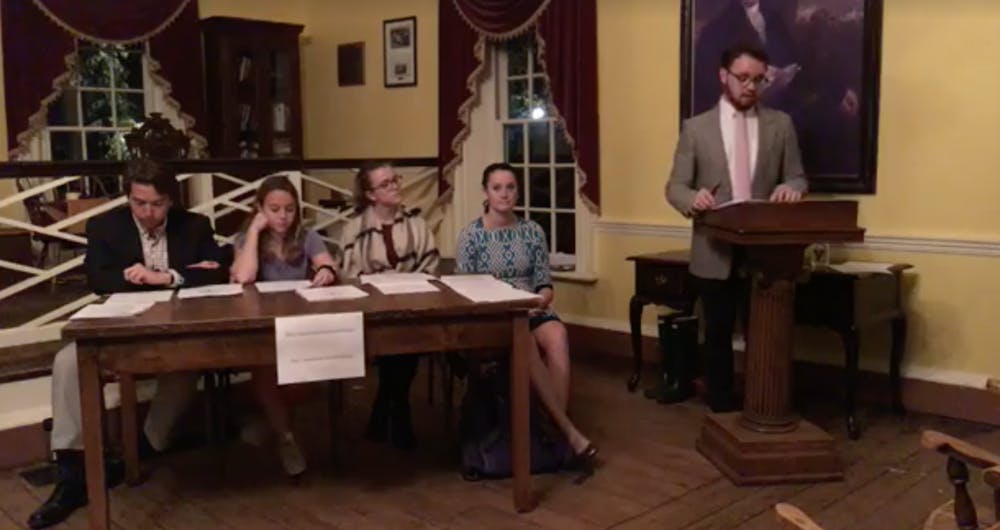The Honor Committee held a mock hearing Tuesday evening, which gave students in attendance a chance to better understand the Honor process at the University. The event was conducted by members of the committee and support officers, who presented the hypothetical hearing involving a student accused of an Honor offense.
“Most Honor hearings, to the accused student’s choice, are closed, so they are not open to the public,” said Jeffrey Warren, a fourth-year College student and Honor representative. “I wanted to demystify the process a little bit and give people a chance to see what it looks like.”
The mock hearing was part of the Popular Assembly, which also included a Town Hall with the Executive Committee Monday and closing remarks with John Gates, the Engineering School’s associate dean for diversity and inclusion, Wednesday.
In the mock hearing, the support officers and Committee members acted as counsel, reported students and reporters.
The mock hearing, which was live-streamed on Facebook, was designed to depict a typical session the committee would face. In the theoretical case, a student took almost all of his information for an assignment from an outside source, but the ambiguity of the assignment given by the professor made it difficult for the panel to reach a verdict.
The panel for the mock trial was made up of students in attendance who witnessed the deliberations and then voted on whether they believed the student was guilty.
“I wanted to do it in this style where the audience was the panel itself, so that the attendees and hopefully the people in the livestream got to get a sense of what it means to decide one of these cases,” Warren said.
Decisions in an Honor hearing are reached based on three criteria — act, knowledge and significance. The panel considers, based on the evidence given, whether the accused student acted in a way which violated the honor code, whether they knowingly violated the honor code and whether this action inhibited the community of trust, which the Honor Committee works to uphold.
The mock trial and the Popular Assembly were intended to erase some of the misconceptions students have and also show that the Honor Committee not exists to implicate students.
“I hope that students feel a lot more comfortable understanding how the process would work and just seeing that a student who is brought into an Honor hearing has an opportunity to express themselves, that the student panel will consider all the evidence presented all the arguments,” said Caitlin Knowles, a third-year Commerce student and Honor support officer.
“Just the other night, I heard a kid being afraid that if his friend an ambulance called for him for public intoxication, that his friend would receive an Honor charge and that’s simply not the case,” Warren said. “I think giving people a concrete example of what kind of case we hear frequently, what the testimony and evidence will often look like, gives people a chance to quash some of those misunderstandings and misconceptions.”







